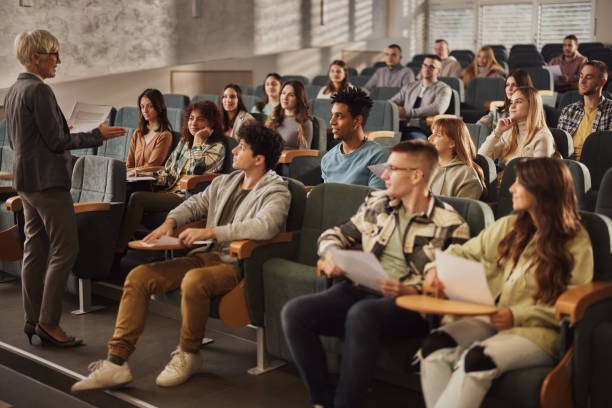Navigating Language Barriers in Education
Overcoming Communication Obstacles for Special Needs Students
EDUCATION
MJ Blake
3/8/20242 min read


For special needs students, communication can be a major obstacle in the classroom. Some students, particularly those on the autism spectrum, may have minimal or selective speaking skills, making it challenging for them to effectively express themselves through spoken or written language.
Autism is a neurodevelopmental disorder that affects individuals' social interaction and communication abilities. While every person with autism is unique, many individuals on the spectrum face difficulties in verbal communication. This can range from having limited vocabulary and struggling with sentence structure to being completely nonverbal.
Fortunately, there are various strategies and techniques that educators and parents can employ to help special needs students overcome these communication obstacles and enhance their overall learning experience.
Alternative Communication Systems
One effective approach is to introduce alternative communication systems, such as Augmentative and Alternative Communication (AAC) devices. These devices can range from simple picture boards to more advanced electronic devices that generate speech. By using these tools, students can express their thoughts, needs, and desires without relying solely on verbal communication.
Additionally, sign language can be beneficial for students who struggle with spoken language. Teaching basic sign language can provide them with an alternative means of communication and help them interact with their peers and teachers more effectively.
Visual Supports
Visual supports are another valuable tool for supporting communication in special needs students. Visual aids, such as visual schedules, social stories, and visual cues, can help students understand and follow instructions, navigate daily routines, and comprehend social situations.
Visual supports can also be used to enhance vocabulary development. Teachers can create visual dictionaries or use picture cards to associate words with corresponding images, making it easier for students to grasp new concepts and expand their vocabulary.
Individualized Education Plans (IEPs)
Individualized Education Plans (IEPs) play a crucial role in supporting special needs students' communication needs. IEPs are tailored plans that outline specific goals, accommodations, and strategies for each student. By including communication goals and interventions in the IEP, educators can address the unique communication challenges faced by each student and provide appropriate support.
IEPs may include speech therapy sessions, assistive technology, and specialized instruction in communication skills. Collaborating with speech-language pathologists and other professionals can further enhance the effectiveness of these interventions.
Promoting Social Interaction
Developing social interaction skills is vital for special needs students, including those with communication difficulties. Encouraging peer interactions, group activities, and structured playtime can help students practice their communication skills in a supportive environment.
Teachers can also incorporate social skills training into the curriculum, focusing on topics such as turn-taking, active listening, and nonverbal communication. By providing explicit instruction and opportunities for practice, educators can help students improve their social communication abilities.
In conclusion, communication obstacles can significantly impact the learning experience of special needs students, particularly those with limited or selective speaking skills. However, by implementing alternative communication systems, visual supports, individualized education plans, and promoting social interaction, educators and parents can empower these students and help them overcome these challenges. By providing the necessary support and resources, we can ensure that every student has the opportunity to thrive and succeed in the classroom.
Contact
Email: contact@beyondlabelreads.com
Socials
WhatsApp: 07840005489
